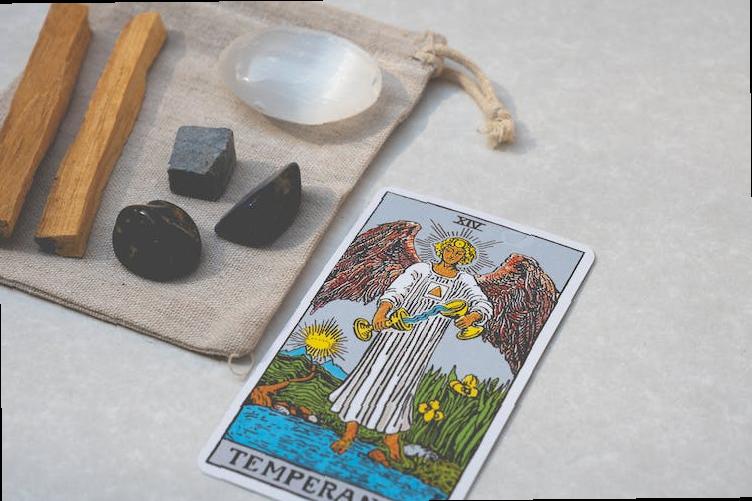
Experience The Thrill: Live Betting In International Sites
Live betting is one of the most exciting forms of sports betting that has emerged…

Charitable gaming is a popular form of fundraising that many organizations and nonprofits rely on to support their charitable causes. In Minnesota, there are several types of games allowed for charitable gaming, but it’s important for organizations to understand the legal requirements associated with each type.
The Minnesota Gambling Control Board regulates charitable gambling in the state and sets guidelines that organizations must follow. The types of games allowed for charitable gambling include traditional paper bingo, electronic bingo, pull-tabs, tipboards, and raffles.
Paper bingo is one of the most popular forms of charitable gaming and involves players marking off numbers on a paper card to match a pattern. Electronic bingo is similar to traditional paper bingo but played on an electronic device. Pull-tabs are often sold at convenience stores and involve players opening tabs to reveal symbols or numbers, with the potential to win a cash prize.
Tipboards are a type of pull-tab game where individual prizes are posted on a board, and players buy tickets with numbers that correspond to the posted prizes. Raffles involve selling tickets for a chance to win a prize, and winners are selected through a random drawing.
It’s important for organizations to understand the legal requirements for each type of game and ensure they are properly licensed and following all regulations set forth by the Minnesota Gambling Control Board. By doing so, organizations can ensure they are conducting charitable gaming in a responsible and legal manner while raising funds for their charitable causes.
In Minnesota, bingo is one of several charitable gaming activities that are regulated by the state’s Department of Revenue. Charitable gaming in general is regulated by the state’s Gambling Control Board. For organizations to hold a bingo event, they must first obtain a charitable gambling license from the Gambling Control Board, which requires a $200 initial application fee and an annual renewal fee.
The rules for conducting bingo games in Minnesota are quite specific. For example, organizations may not charge more than $3 per game, and the total prize value for all games played in a single session cannot exceed $2,500. Also, organizations must keep detailed records of all bingo games conducted, including the date, location, and prize amounts awarded. These records must be kept on file for at least three years.
Another important aspect of charitable gaming in Minnesota is the requirement to donate a certain percentage of proceeds to a charitable cause. For bingo, the minimum percentage that must be donated is 10% of the gross profits from the event. This means that if an organization raises $1,000 from a bingo event, they must donate at least $100 to a charitable cause.

In summary, Bingo is a tightly regulated form of charitable gaming in Minnesota. Organizations must obtain a license, follow specific rules related to game play and prize awards, and donate a minimum percentage of profits to charitable causes.
Pulltabs are a type of charitable gaming in Minnesota that are subject to legal requirements. The state requires that all organizations conducting pulltab games be licensed by the Gambling Control Board. The organization must also have been in existence for at least three years and have a charitable purpose.
Additionally, organizations must keep detailed records and submit monthly reports to the board, which includes information on all games played, prizes awarded, and expenses incurred. The board also requires the use of a designated electronic pulltab system, which tracks all sales and payouts.
All proceeds from pulltabs must be used for charitable purposes, and organizations are required to provide an annual report detailing their charitable activity. Furthermore, there are specific rules around the conduct of the games, including the use of cash-only payments and the prohibition of selling pulltabs to minors.
In summary, while pulltab gaming is a popular form of charitable fundraising in Minnesota, it is subject to strict legal requirements to ensure transparency and accountability. For the Latest casino news, you can find Non gamstop casino sites with free bonus codes.
Under Minnesota state law, raffles are allowed as a form of charitable gaming. Eligible organizations must obtain a license from the state and follow strict guidelines for conducting raffles, including limitations on the value of prizes, ticket sales, and the use of proceeds. Nonprofit organizations such as schools, churches, and charitable organizations are eligible to apply for a raffle license.
All raffles must be conducted in a fair and honest manner, with all ticket sales recorded and properly accounted for. The State of Minnesota requires that all raffle proceeds be used for charitable purposes, and winning tickets must be drawn in a public setting. Additionally, raffles must comply with all local and state laws, including tax laws.
VIP Programs are often offered at UK non gamstop casinos. However, it is important to note that these programs fall outside of the scope of charitable gaming laws and regulations in Minnesota. Organizations conducting raffles must carefully adhere to all legal requirements to ensure that their fundraising efforts remain compliant with state regulations.
In Minnesota, tipboards are one of the legal forms of charitable gaming that can be conducted by eligible organizations. Tipboards are essentially a type of pull-tab game where players purchase a chance to win a prize by revealing a combination of symbols or numbers on a pre-printed ticket. The winning combinations and corresponding prizes are displayed on a separate game board, which is typically held by a game operator.
To conduct tipboard gaming legally in Minnesota, the organization must be licensed by the Minnesota Gambling Control Board (MGCB). Additionally, there are various regulations and requirements that must be followed, including proper recordkeeping, eligibility criteria for players and organizations, and limitations on prize amounts and payouts. Organizations must also follow rules regarding the design and printing of tipboard tickets, as well as the distribution and sale of tickets.
Tipboards are popular forms of charitable gaming in Minnesota due to their simplicity and potentially large payouts. They can be conducted at events such as bingo nights or fundraising dinners, and are often used to raise funds for charitable causes such as education, health, and public safety. By following the legal requirements for tipboard gaming in Minnesota, eligible organizations can raise money for their causes while providing entertainment for players.

In the context of legal requirements for charitable gaming in Minnesota, sports-themed gaming events must comply with the state’s gambling regulations. Charitable organizations that want to host sports-themed gaming events must be licensed by the Minnesota Gambling Control Board (MGCB) and must comply with the board’s rules and regulations.
Under state law, all gambling activities, including sports-themed gaming events, must be conducted for a charitable purpose only. All profits generated from these events must be used to benefit charitable causes that are approved by the MGCB.
Sports-themed gaming events must also comply with restrictions on the types of games that can be offered and the prizes that can be awarded. For example, participants in sports-themed gaming events must not be able to win cash prizes, and the value of non-cash prizes must be limited to a specific dollar amount.
In addition, charitable organizations must follow strict reporting requirements and maintain accurate financial records of all gaming activities. Failure to comply with the regulations can result in penalties, fines, and revocation of the organization’s gaming license.
Overall, sports-themed gaming events can be a fun and effective way for charitable organizations to raise funds for their causes, but it is essential to comply with all legal requirements and regulations to avoid potential legal issues.
Charitable gaming in Minnesota is regulated by the Minnesota Gambling Control Board, which provides guidance on the type of gambling activities that are allowed for charitable organizations. One such activity is Trivia-themed nights, which have become a popular form of fundraising for many organizations.
To host Trivia-themed nights, charitable organizations must obtain a license from the Gambling Control Board. This license allows them to offer games of chance, such as raffles or pull-tabs, in conjunction with the trivia game. The organization must also follow specific rules regarding the conduct of the game, including the prohibition of cash prizes and the requirement to ensure players are at least 18 years old.
Additionally, the Minnesota Charitable Gambling statute has specific rules regarding the use of proceeds from charitable gaming activities. At least 70% of the net profits from Trivia-themed events must be used for the organization’s charitable purposes, such as supporting a food shelf or animal shelter.
In summary, Trivia-themed nights can be a fun and effective way for charitable organizations to raise funds, provided they obtain the appropriate license from the Gambling Control Board and follow the specific rules and regulations outlined under Minnesota law.
In Minnesota, card games are among the types of gaming activities that fall under the charitable gaming laws. According to these laws, charitable organizations are allowed to conduct certain card games, such as poker and blackjack, if they comply with the regulations set forth by the Minnesota Gambling Control Board. The organizations must obtain a license to conduct these games, and they must also ensure that all proceeds from the games are used for charitable purposes. Additionally, the law requires that players be at least 18 years old and that the games be conducted in a manner that is fair and transparent. If a charitable organization violates any of these regulations, it may face penalties, such as fines or revocation of its license to conduct card games.
If you’re looking for Crypto-friendly casinos, you can find some of the best options among non gamstop casinos.
Beano is a popular form of charitable gaming that is regulated by Minnesota laws. According to legal requirements in MN, charitable organizations that wish to conduct Beano games must obtain a license from the state. The license allows them to offer Beano games to the public as long as they follow strict rules and guidelines.
Charitable organizations must ensure that they comply with all the legal requirements for Beano, including the maximum prize amount, the number of games that can be offered, the frequency of the games, and the specific rules of the game. The maximum prize amount for Beano in MN is $200, and no more than two games can be offered per day, with no more than four events per week.
Additionally, all proceeds from Beano games must be used for charitable purposes, and charitable organizations must keep accurate records of all transactions related to the game. They must also ensure that all employees and volunteers involved in conducting the game are properly licensed by the state.
Overall, Beano is a fun and exciting form of charitable gaming in Minnesota that benefits many worthy causes. Charitable organizations must ensure that they comply with all the legal requirements to conduct a successful and legally sound Beano game.
Charitable gaming in Minnesota is regulated by the Minnesota Gambling Control Board (MGCB). Charitable organizations can conduct casino nights, also known as Las Vegas Nights, as a fundraising activity. However, there are several legal requirements that charitable organizations must comply with.
Firstly, the organization must be registered with the MGCB and obtain a permit to conduct the event. They must also follow specific guidelines for conducting the event, including rules for the games that can be played, prize limits, and the hours of operation.
The organization must also ensure that all volunteers working at the event have completed a background check and are properly trained in the rules of the games. They must also ensure that all funds collected from the event are properly accounted for and that proceeds are used for the intended charitable purpose.
In addition, the organization must comply with all tax reporting and withholding requirements. They must also operate the event in compliance with all federal, state, and local laws.
Overall, a casino night can be a fun and profitable way for a charitable organization to raise funds. However, it is important to comply with all legal requirements to avoid any potential legal issues. If you’re a non gamstop user, you may be interested in exploring cryptocurrency exchanges for non gamstop deposit methods.
In Minnesota, poker tournaments fall under the category of charitable gaming. To be eligible to conduct a charitable poker tournament, the organization must hold a valid license from the Minnesota Gambling Control Board. Additionally, the organization must have been in existence for at least three years before applying for the license. During the poker tournament, participants must be at least 18 years old to play. The tournament must also comply with specific prize limits set by the Minnesota Gambling Control Board. The maximum prize pool for a poker tournament is $10,000, and the top prize cannot exceed $2000.
The organization must also maintain accurate records of the poker tournament’s financial transactions, and all proceeds must be used for lawful purposes. Further, it is required to file a financial report with the board within 30 days after the tournament.
In conclusion, legal requirements for charitable gaming in Minnesota set specific rules for poker tournaments. It is crucial to comply with these rules to avoid any legal penalties. To learn about payment options at Non Gamstop Casinos, check out our comprehensive non gamstop casino reviews.
In the state of Minnesota, charitable gaming is a popular way for nonprofit organizations to raise funds for their causes. However, there are legal requirements that must be followed in order to conduct these games.
First and foremost, organizations must obtain a charitable gambling license from the Minnesota Gambling Control Board (GCB). This license is renewed annually and comes with various fees and reporting requirements.
In addition to obtaining a license, organizations must follow specific rules when conducting the games. For example, the maximum prize amount for some games is $200, while others have a higher limit. There are also rules around the number of games that can be conducted in a day and the hours during which they can be played.
Organizations must also report their earnings and expenses to the GCB. This includes tracking all funds generated from the games, as well as any expenses related to conducting them. These reports must be submitted on a regular basis to ensure compliance with state laws.
Failure to follow these legal requirements can result in fines or the revocation of a nonprofit organization’s gambling license. It’s important for organizations to familiarize themselves with the laws governing charitable gaming in Minnesota and to stay up-to-date on any changes or updates.
Overall, while the legal requirements for charitable gaming in Minnesota may seem strict, they are in place to ensure that these games are conducted fairly and that the funds generated are being used for charitable purposes. By following these guidelines, nonprofit organizations can continue to raise funds for their causes and make a positive impact in their communities.